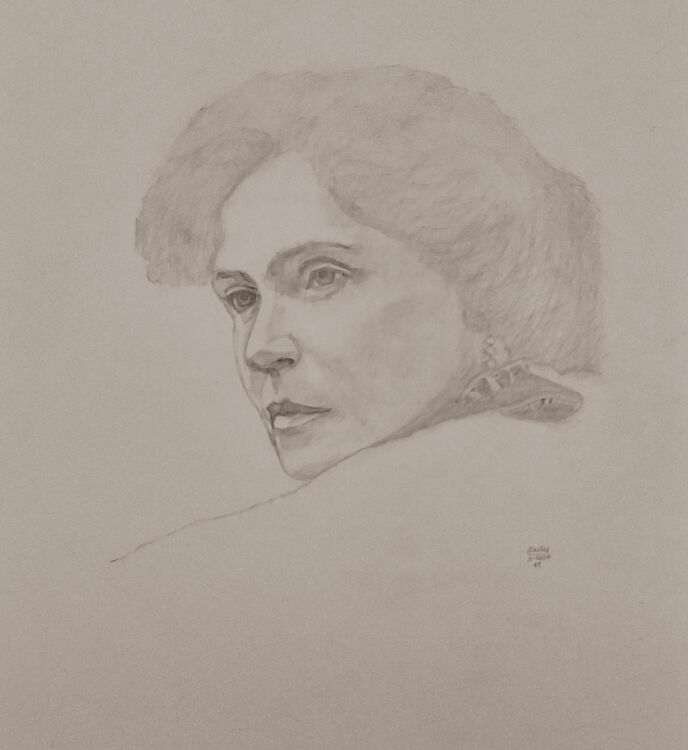
Esther-Rachel Kaminska
Esther-Rachel Kamińska was a Polish-Jewish actress who was known as the mother of Yiddish theatre. She won fame as the star of a series of Yiddish theatre companies managed by her husband, Abraham Isaac Kamiński, touring in the cities and small towns of the Russian Empire from approximately 1893 to 1905, mostly playing in operettas.
The works of Jacob Gordin ... whose melodramas were filled with powerful women’s roles, provided her strongest vehicles. In Warsaw in 1905, Kaminska played the title role in Gordin’s "Khashe the Orphan Girl," about a great-hearted Jewish country girl brought to work in a modern middle-class family and finally destroyed by its hypocrisy. Several years later she played the title role in Gordin’s "Mirele Efros," the “Jewish Queen Lear,” arguably the most popular play in the history of Yiddish theatre. When Esther-Rachel, mother of three children, prematurely aged by a wanderer’s life, a stocky and somewhat masculine stage presence, portrayed the proud widow of a bankrupt merchant who has rebuilt the family business only to be threatened by her mercenary modern daughter-in-law ... Performances such as these led to her canonization by adoring audiences as "the Mother of the Yiddish Theatre."
In Warsaw, in 1907, they together founded the Literary Troupe, the first Yiddish theatre company to dedicate itself to a 'literary' or 'artistic' repertoire. Kamińska won wide recognition when she performed in dramatic roles, in particular in the Warsaw premiere of I.L. Peretz's, "The Golden Chain," and the following tournée in Russia in 1908-1909.
The artist was well-received by affluent assimilated Jews in Moscow and Saint Petersburg, which was of crucial importance in the development of her career. Kamińska also performed in the United States, London and Paris.
Kamińska is said to be the one who introduced and popularized the European classics such as Shakespeare, Chekhov and Shaw onto the Yiddish stage. Kamińska also played in Yiddish films such as "Mirełe Efros," "The Stranger," "The Step-Mother," and "The Vow," which was released in 1924.
She was the mother of Ida Kamińska, the well-known stage and film actress, who cofounded the Warsaw Yiddish Art Theatre in the 1920s, and, in 1946, following the Second World War, played in reestablished Yiddish theaters in Poland. Today, the Yiddish theatre in Warsaw is named after the two actresses.